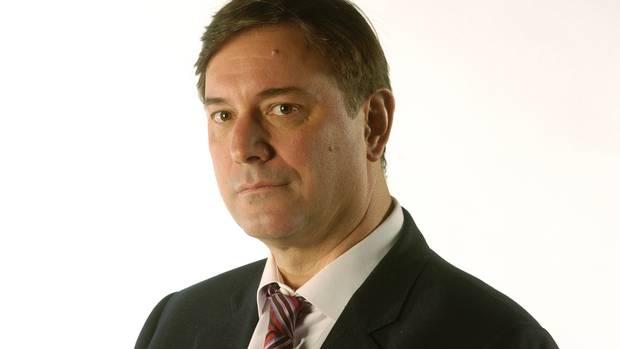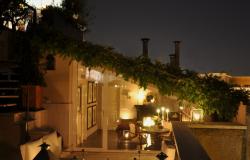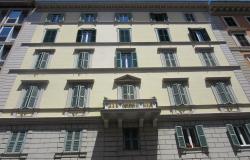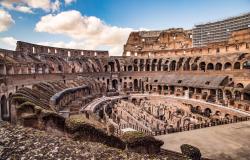In the third part of a series of interviews with those whose job it is to explain Italy to the world, Carol King speaks to Eric Reguly about his life as a correspondent based in Rome, and his experience of living and working in Italy.
How long have you worked in Rome as a correspondent and who do you write for?
Five years - I arrived in May 2007. I’m not a classic foreign correspondent, I’m based in Rome but as European Business Correspondent for Canada’s The Globe and Mail, so I’m travelling constantly covering business and finance.
Do you have a typical day?
I’m on the road half the time. When I’m in Rome I get up at 6.30am, return overnight emails, go to Testaccio market to do my shopping, have a coffee and then start the day in earnest at 10 o’clock. Typically, I write some news for [The Globe and Mail] website. Rome is six hours ahead of Toronto, so then people getting up in the morning there have something to read. I try to get out for lunch, maybe with contacts, or go to the Associazione della Stampa Estera (Foreign Press Association). At 3pm my day starts getting really busy because at that point I’m writing for the newspaper and that has to include analysis and comment. It’s a long day because of the time difference. I don’t talk to my editors until 4pm Rome time and typically I don’t finish [work] until 10pm, especially now because of what’s happening with the economic crisis and what’s happening in the Eurozone. Inbetween I juggle family [life].
How do you select which stories to file?
I have an idea what’s happening in Europe and there are obvious stories I can’t ignore - I don’t have to be told to jump on stories. I negotiate longer-range stories with editors… The paper gives the reader extra value in [terms of] context, content and colour - more than a simple news story.
Has social media, for example Twitter, affected how you work and if so, how?
I’m on Twitter. First, it broadens my audience. Second, it’s a really valuable journalistic tool because you can get ideas, contacts and comments quickly. I follow various economists and they post comments hours before Bloomberg, so I look at Twitter all the time. I look at it a lot when there’s a running story as everyone comments and that’s valuable.
How have you got your Italian to a level where you can do interviews and translate quotes accurately for a story?
I’m pretty fluent and I can do fairly basic interviews [in Italian], but I’m out of Italy so often. For hard-core technical interviews using terms like ‘cash flow’ and so on, most people in business, like chief executives, and politicians speak English, so it’s not an issue. My written Italian is quite good. I have an Italian instructor, watch RAI and read Italian newspapers every day. I’m not your typical foreign correspondent, mostly I’m interviewing people in Frankfurt, London and Zurich, and English is the lingua franca in business.
What the biggest challenge you face in explaining events in Italy to your readers?
What’s hard is to show how things are in Italy. In North America when there’s a crisis you deal with it and move on. I write the same story for three years on the Eurozone and Italian debt crisis, and it’s difficult to explain why Mediterranean countries think in decades not weeks or months. It’s widely known Italy is corrupt and it’s hard to explain why Italians do nothing about the mafia - that there’s an accommodation to live with them. When I write non-business news, writing about restaurants, wine, fashion and travel, readers love it and think of ‘la dolce vita’ - the romance.
What’s the most interesting story on Italy you’ve covered?
The fall of [Silvio] Berlusconi: the playboy prime minister who fiddled while Rome burned, and his denial regarding the debt crisis and recession. It was great covering him because he provided endless fodder and I miss him as a journalist. It was hugely entertaining writing about the end of the Berlusconi era and, arguably, the biggest politician in the world.
And what’s been the most shocking story?
Berlusconi’s shocking disregard for the economic situation: Italy would not be in as bad shape now if he had paid attention three years ago to red tape… [You need] 60 permits to start a small business, it’s shocking.
Italy is facing an economic crisis at the moment, so what are your thoughts on its future?
Not positive - it’s very sad. First, Italian debt is very high at 120% of GDP - the only country with higher debt in Europe is Greece. Second, I fear Italy is losing its manufacturing base because it’s shrinking rapidly; that’s bad as Italy can’t be a tourism-only country with low value, low-paying jobs. There’s still value in ‘Made in Italy’ products, so Italy needs to upscale quickly.
What do you like most about Italy and what do you like the least?
The sense of a balanced life. Don’t believe the cliché that Italians are workshy: they work and play hard, and eat well. I love the sense of family, sunshine and friendliness here. I hate the shoddiness - that things are falling down because there is no maintenance - and the disregard for public spaces, parks and heritage… Also the suburbanisation of Rome: the shopping malls and car culture - the same mistakes made in North America 50 years ago - destroying the city.
What is your favourite café or restaurant in Rome and why?
All the coffee in Rome is good; a café where I know people is best. Perilli (Via Marmorata 39, Testaccio) does the best spaghetti carbonara in Italy - simple, classic dishes - and isn’t pretentious. Renato e Luisa for traditional Roman fare.
If you could work anywhere else as a correspondent where would it be and why?
Cairo, Egypt because the Arab Spring is a hugely important and compelling story full of human drama. It’s a good location for a correspondent who wants to be where the action and big story is - but I’m a family guy.
 Eric Reguly is European Business Correspondent for the Canadian national newspaper, The Globe and Mail. He has worked for a number of publications, including The Times of London, The Financial Post in New York and London, and Alberta Report magazine. Reguly has won several awards for his work, including, in 2007, the Hyman Solomon Award for Excellence in Public Policy Journalism. He is on Twitter @ereguly.
Eric Reguly is European Business Correspondent for the Canadian national newspaper, The Globe and Mail. He has worked for a number of publications, including The Times of London, The Financial Post in New York and London, and Alberta Report magazine. Reguly has won several awards for his work, including, in 2007, the Hyman Solomon Award for Excellence in Public Policy Journalism. He is on Twitter @ereguly.










